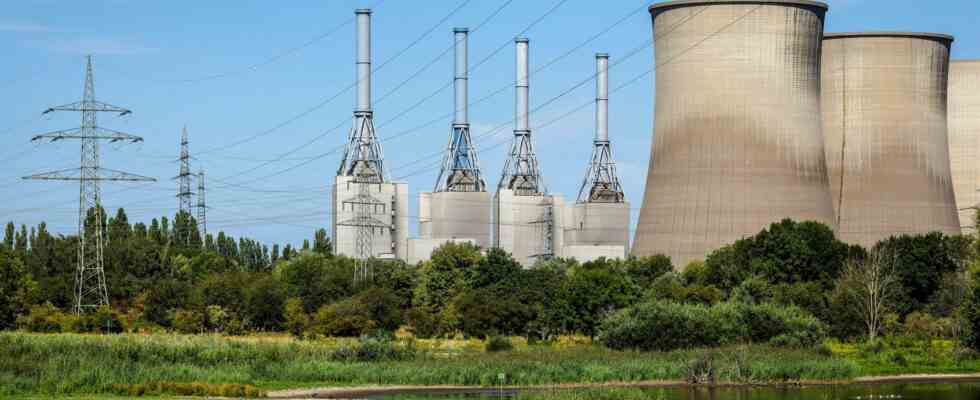Status: 08/18/2022 12:11 p.m
Despite severely curtailed energy supplies from Russia, German gas-fired power plants generated more electricity in July than in 2021. This is also due to the high demand from countries like France.
Gas-fired power plants in Germany produced significantly more electricity in July than in the same month last year. This July, the amount of electricity generated rose to 4,036 gigawatt hours from 3,558 gigawatt hours in July 2021. This corresponds to an increase of 13.5 percent, according to the Federal Network Agency’s Smard electricity market data portal.
As early as May of this year, the amount of electricity generated was significantly higher than in the previous year, but slightly lower in June. If you look at the year 2020, the figures for all three months are again well above all values for 2021 and 2022. In July 2020, for example, gas-fired power plants generated a total of 5888 gigawatt hours of electricity.
Federal Finance Minister Christian Lindner (FDP) recently called for electricity production to be stopped using gas. One must work to ensure that the gas crisis does not lead to an electricity crisis, said Lindner in the “Bild am Sonntag”. “Therefore, gas can no longer be used to produce electricity, as is still happening.” The Ministry of Economics pointed out that a complete abandonment of gas in the electricity sector would lead to an electricity crisis and blackouts.
Electricity exports to France almost sixfold
The industry association Zukunft Gas suspects that the reason for the current plus is a sharp increase in the demand for electricity from France, where numerous nuclear power plants are currently not connected to the grid, and from Switzerland. Because of the drought, not so much hydroelectric power can be produced there at the moment.
Already in the second quarter, electricity exports from Germany to France had increased almost sixfold compared to the previous year. For exports to Switzerland, the increase was even more than sixfold. “These amounts of electricity were partly produced and exported with gas-fired power plants,” said a spokesman for the German Press Agency.
“Neighborly Solidarity”
The President of the Federal Network Agency, Klaus Müller, had ZDFTalk show “Markus Lanz” spoke of an effect that has something to do with “neighborly solidarity”, “even if it is undesirable from a gas point of view”.
Energy expert Mirko Schlossarczyk from the energy consulting firm enervis energy advisors says in an interview tagesschau.dethat one sees a counter-movement to what was actually foreseen in terms of energy policy: saving gas in electricity generation. A 13.5 percent increase in electricity production from gas-fired power plants in July 2022 compared to the same month last year meant that around one terawatt hour (TWh) more gas was used to generate electricity.
According to Schlossarczyk, many problems are currently coming together. Historically, maintenance work on nuclear power plants has repeatedly taken place in France in the summer. Now there are also problems with the lack of cooling water and technical difficulties. All of this means that, for the first time in years, Germany is delivering significant amounts of electricity to France on balance in the summer months. French electricity prices have reached record highs, which are primarily characterized by high risk premiums.
High gas prices also mean expensive electricity
“If we say: We have to save gas because we need it in the heating market, then it would also be logical to say that the gas-fired power plants should be shut down,” said Schlossarczyk. Then there must be a clear decision not to generate electricity from gas anymore. Because as long as the high gas prices could be passed on to the electricity market, this would also be done according to the rules of the market economy. The other question is to what extent this is justifiable in the event of a possible gas shortage.
The expert does not consider a relaxation of electricity prices to be out of the question. But it depends on various factors. A prerequisite is also the normalization of the water levels in the rivers and an improvement in the situation at the French nuclear power plants. In addition, as planned in the Replacement Power Plant Availability Act (EKBG), a number of coal-fired power plants would have to return to the grid. But that doesn’t happen overnight. The continued operation of the German nuclear power plants could also provide relief.

